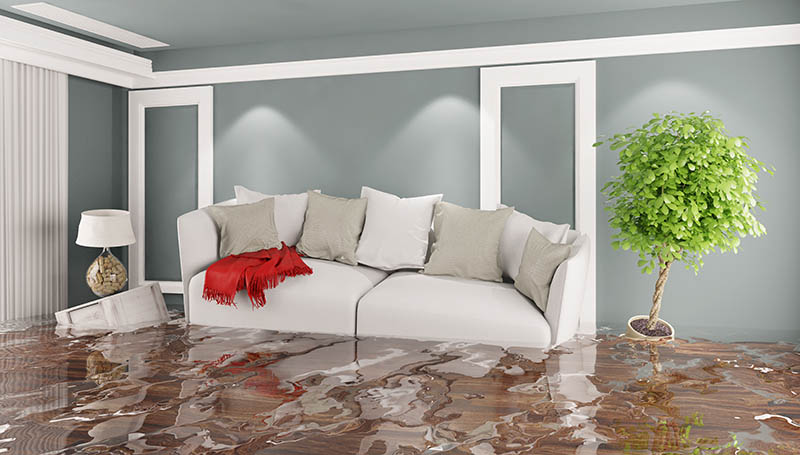Your Home's Primary Common Leak Factors: Analysis
Your Home's Primary Common Leak Factors: Analysis
Blog Article
The article down below on the subject of Common Water Leaks In House is immensely compelling. Give it a try and make your own personal conclusions.

Leaks not only cause waste of water however can additionally trigger unnecessary damage to your house and also promote undesirable natural growth. Unfortunately, water leaks might go unnoticed because most of the pipework in our house is concealed. By looking and also understanding for daily scenarios that cause leakages, you can safeguard your house from future leakages and unneeded damage. Today, we will consider 6 leakage creates that may be causing your pipes to trickle.
Immediate temperature level modifications.
Severe temperature level adjustments in our pipes can create them to increase and also contract all of a sudden. This development and also tightening might trigger fractures in the pipelines, especially if the temperature are listed below freezing.
Rusty water supply
As time goes by, your plumbing system ages and rust such as corrosion might begin gnawing the pipes. This could be the root cause of staining or warping on your pipes. This requires an evaluation with your plumber quickly. Think about changing the pipes given that they are at a higher threat of deterioration than the newer models if our plumbing system is old.
Defective Pipeline Joints
Pipe joints can deteriorate over time, resulting in water leaks. If you have loud pipes that make ticking or banging sounds, particularly when the warm water is transformed on, your pipe joints are probably under a lot of stress.
Intruding roots
Most water leaks begin outside the house as opposed to inside it. If you notice an unexpected decrease in water pressure, say in your faucet, take some time to go out and also examine your yard. You could see wet spots or sinkholes in your yard, which may indicate that tree roots are getting into water lines causing water to leak out. You can have your plumber look for intrusion, particularly if you have trees or shrubs near your home.
Poor Water Connectors
At times, a leak can be created by loose tubes as well as pipes that provide your appliances. In case of a water connections leak, you may notice water running straight from the supply line or pools around your appliances.
Blocked Drains
Obstructed drains pipes may be irritating as well as inconveniencing, but they can in some cases wind up triggering an overflow leading to break pipelines. Maintain removing any type of products that might go down your drains pipes that could obstruct them to stay clear of such hassles.
All the above are sources of leaks but not all water leaks result from plumbing leaks; some leaks might come from roofing leakages. All leakages should be repaired right away to stay clear of water damages.
Leakages not just cause waste of water however can likewise cause unneeded damage to your residence and promote unwanted organic development. By understanding and looking for everyday scenarios that cause leakages, you can secure your residence from future leakages and unneeded damage. Today, we will look at six leak causes that may be creating your pipelines to drip.
At times, a leak can be triggered by loosened hose pipes as well as pipelines that supply your appliances. In situation of a water connections leak, you may observe water running straight from the supply line or pools around your home appliances.
How To Check For Water Leak In Your Home
How To Check for Leaks
The average household's leaks can account for nearly 10,000 gallons of water wasted every year and ten percent of homes have leaks that waste 90 gallons or more per day. Common types of leaks found in the home are worn toilet flappers, dripping faucets, and other leaking valves. These types of leaks are often easy to fix, requiring only a few tools and hardware that can pay for themselves in water savings. Fixing easily corrected household water leaks can save homeowners about 10 percent on their water bills.
To check for leaks in your home, you first need to determine whether you're wasting water and then identify the source of the leak. Here are some tips for finding leaks:
Take a look at your water usage during a colder month, such as January or February. If a family of four exceeds 12,000 gallons per month, there are serious leaks.
Check your water meter before and after a two-hour period when no water is being used. If the meter changes at all, you probably have a leak.
Identify toilet leaks by placing a drop of food coloring in the toilet tank. If any color shows up in the bowl after 10 minutes, you have a leak. (Be sure to flush immediately after the experiment to avoid staining the tank.)
Examine faucet gaskets and pipe fittings for any water on the outside of the pipe to check for surface leaks.
Undetected water leaks can happen without the home or business owner even realizing. If you suspect a water leak, but not able to find the source. It is time to contact a professional water leak detection service, The Leak Doctor.
How To Find a Water Leak In Your Home
https://www.leakdoctor.com/blog/How-To-Check-For-Water-Leak-In-Your-Home_AE197.html

We are very interested by How to Find Water Leaks and I really hope you enjoyed reading the piece. Enjoyed our post? Please share it. Help someone else discover it. We take joy in reading our article about How to Find Water Leaks.
For fast action, contact! Report this page